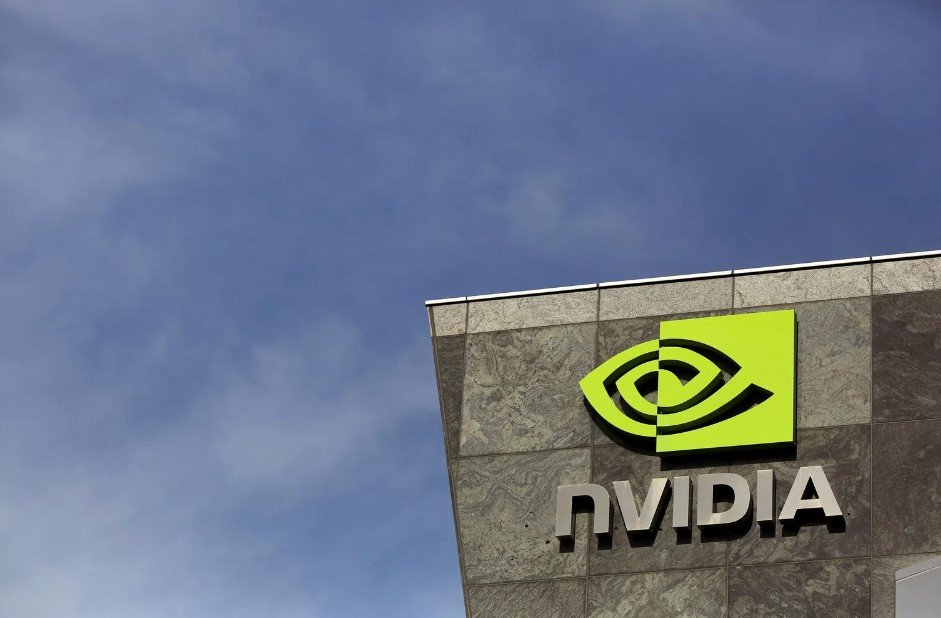
Nvidia Ai Tech
Nvidia Overtook Apple
Nvidia, the California-based tech giant, has officially dethroned Apple to become the world’s largest company by market capitalization, reaching a remarkable $3.43 trillion on the strength of an unprecedented global push in artificial intelligence (AI). This growth marks a pivotal moment not only for Nvidia but also for the AI industry as a whole, highlighting a shift in tech priorities and revealing new opportunities for both corporations and consumers.
Nvidia’s Journey to the Top
Founded in 1993, Nvidia initially specialized in graphics processing units (GPUs) for gaming. However, with the rise of deep learning and AI, Nvidia’s GPUs have emerged as essential tools for training and running advanced machine learning models. Over the past decade, Nvidia has pivoted to focus heavily on AI-driven computing, establishing itself as the leading provider of hardware solutions for AI research and development.
This shift has propelled Nvidia into the spotlight, particularly as demand for AI models and data-intensive applications exploded. The company’s GPUs are now a staple for AI workloads, used by tech giants such as Microsoft, Amazon, and Meta, who rely on Nvidia hardware to power their large language models, recommendation engines, and other AI-driven applications.
Nvidia’s AI-Driven Dominance
Nvidia’s growth over the past year has been nothing short of meteoric, experiencing an astounding 850% stock increase since late 2022. The company’s stock surged again recently, surpassing Apple’s market cap to solidify Nvidia’s position at the top. This rise reflects not only investor optimism about AI’s future but also Nvidia’s unique positioning within the industry as a hardware provider critical to the AI ecosystem.
While Apple introduced its generative AI model, “Apple Intelligence,” Nvidia’s technology remains the backbone of many larger models, like OpenAI’s ChatGPT and Google’s AI tools. Nvidia’s latest GPUs, the H100 and A100, are optimized for large-scale AI model training and inferencing, allowing companies to build sophisticated systems with unprecedented speed and efficiency.
Why Nvidia Holds the Edge
Market analysts suggest that Nvidia’s positioning in AI infrastructure grants it a unique advantage over traditional tech giants. Fall Ainina, Director of Research at James Investment Research, commented, “Nvidia overtaking Apple in market cap signifies more than just financial success. It represents how essential AI has become to the global economy.”
Financial analysts forecast a 100% revenue increase for Nvidia this fiscal year, with an additional 44% growth expected in the next year. This level of growth has prompted other companies to focus on AI as a strategic necessity. However, while Apple and others are still developing their AI capabilities, Nvidia’s well-established infrastructure has put it leagues ahead, catering directly to the demands of companies eager to implement advanced AI technologies.
How Nvidia’s Technology is Powering the Future
Nvidia’s AI advancements have led to real-world applications that are transforming industries. In healthcare, for example, Nvidia’s GPUs enable faster diagnostics and drug discovery through AI-driven image analysis and predictive modeling. Financial institutions use Nvidia-powered AI to enhance fraud detection, optimize trading strategies, and personalize customer experiences.
One particularly compelling use case is autonomous driving, where Nvidia’s Drive platform enables cars to process real-time data, identify obstacles, and make decisions on the road. In media and entertainment, Nvidia’s AI tools streamline content creation, with AI-assisted video editing and special effects that are faster and more efficient than ever.
Leveraging Nvidia’s Technology for Personal and Business Use
- For Developers: Nvidia provides resources like the Nvidia Developer Program, which offers access to libraries and tools for building AI models. These tools can help accelerate development for AI and deep learning applications.
- For Businesses: Small and medium businesses can leverage Nvidia’s cloud-based GPU services, such as Amazon Web Services (AWS) with Nvidia GPUs, for cost-effective AI model training and inferencing without needing to invest in expensive hardware.
- For Gamers and Creators: Nvidia’s GeForce series remains popular among gamers and creators alike, providing high-quality graphics and rendering speeds. Nvidia’s new GeForce Now service allows gamers to stream high-performance games on almost any device, regardless of its internal hardware.
The Benefits and Challenges of Nvidia’s AI Leadership
The benefits of Nvidia’s advancements are manifold, bringing unparalleled processing power and efficiency to industries worldwide. However, the rapid rise of AI technology also presents challenges. For instance, as AI models become more advanced, the need for high-performance GPUs increases, resulting in higher costs for companies investing in AI.
Additionally, Nvidia’s dominance in AI hardware means that smaller companies may struggle to afford the infrastructure needed to compete in this space. This concentration of power raises questions about market competition, accessibility, and innovation.
How Will AI Shape Our Future?
As Nvidia’s dominance in AI continues, it prompts a broader conversation about the implications of such rapid technological advancement. Consider these questions as you think about AI’s future:
- How will Nvidia’s technology impact industries outside of tech, such as healthcare, education, and finance?
- With AI becoming more embedded in daily life, what role should ethics and regulation play in its development and deployment?
- Can other companies challenge Nvidia’s market dominance, or will this centralization of AI technology limit competition?
Nvidia’s journey from a gaming hardware company to a global AI powerhouse demonstrates how technology can shape and redefine markets. As the world enters a new era of AI-driven innovation, Nvidia’s position at the forefront of this revolution serves as both an inspiration and a challenge to the tech industry at large.





